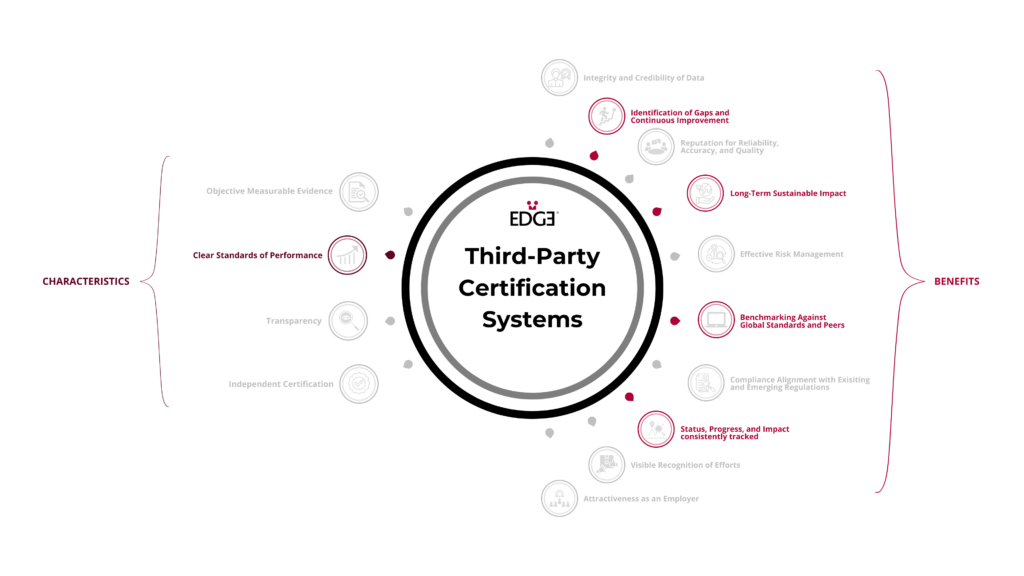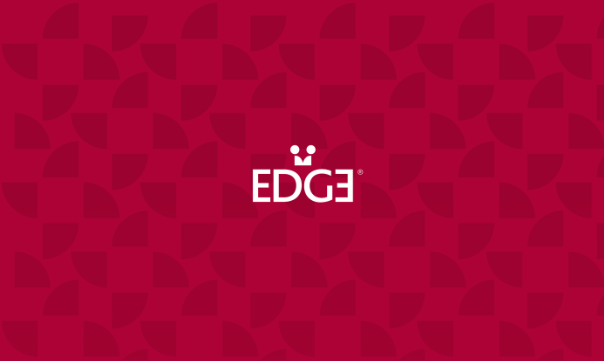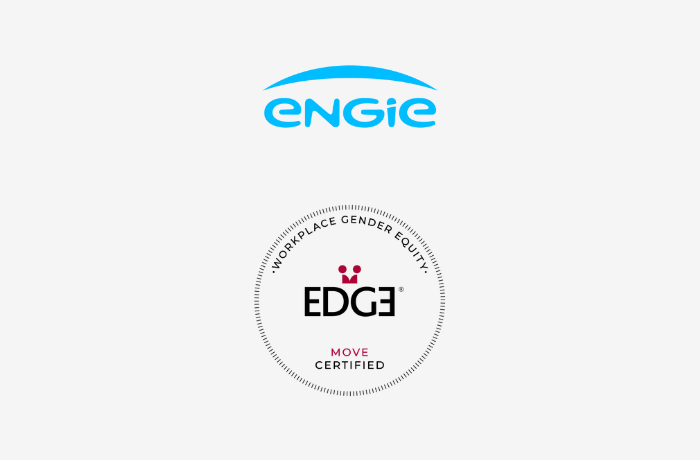Third-party certification systems play a pivotal role in ensuring accountability, transparency, and trust across industries and markets. They help organizations meet rigorous standards, and enhance stakeholder trust by providing reliable, verified data and information. As ISEAL (the global membership organization for credible sustainability standards) highlights, “Sustainability standards continue to be one of the most important tools to support businesses across the value chain deliver on core sustainability issues.” In this series of articles, we explore the four key characteristics and associated benefits of third-party certification systems. With a particular focus on EDGE Certification, the global standard for workplace diversity, equity, and inclusion, we demonstrate how certification gender equity, and gender and intersectional equity is a powerful tool that can drive inclusive economic growth and create respectful work environments for all.

Third-party certification systems establish clear, consistent standards of performance, creating a uniform benchmark for organizations to measures themselves against. They also ensure that organizations are held accountable for their status, performance, and commitments through regular audits and action plans.
EDGE Certification sets clear standards for achieving gender equality in the workplace, standards that are consistent across different industries and geographies. The EDGE Standards were developed and are based on leading global practices in measuring gender equity in the workplace. The periodic Standards development, review, and revision process is comprehensive, transparent, inclusive and robust.
EDGE Certification requires that organizations demonstrate a commitment to gender equality to become certified. To move through the different levels of Certification, an organization must meet specific performance thresholds. The highest level of EDGE Certification is reached when an organization meets the complete set of indicators underpinning the EDGE Standards. Keeping the certification current through regular recertifications can help ensure that organizations are held accountable, and that progress is continuous.
EDGE Certification also requires organizations to commit to an action plan to close identified gaps against the EDGE Standards. Action plans are designed by organizations themselves and are intended to help them continuously improve their performance against the EDGE Standards, ensuring ongoing accountability. The EDGE Certification process enables an organization to benchmark themselves against the global EDGE Standards and against peers within their sector and geography, and strive for continuous improvement.
By providing an objective assessment and a clear set of performance indicators, standards like EDGE help organizations to manage their ongoing performance against a globally recognized and reputable Standard in its field. Third-party certification systems such as EDGE Certification ensure that organizations do not merely make superficial commitments but are held to a rigorous, fair, and credible process that validates their efforts and performance. This clarity and consistency in the standards foster a culture of excellence and accountability, contributing to the enhancement of an organization’s reputation.
Our exploration of the characteristics and benefits of third-party certification systems continues with a deep dive into transparency—a fundamental element that drives business growth, fosters innovation, and builds a more equitable workplace.
If you missed the earlier articles, you can catch up here with our insights on the impact of Voluntary Sustainability Standards in addressing Equality, Equity, and Inclusion and the importance of Objective, Measurable Evidence.




